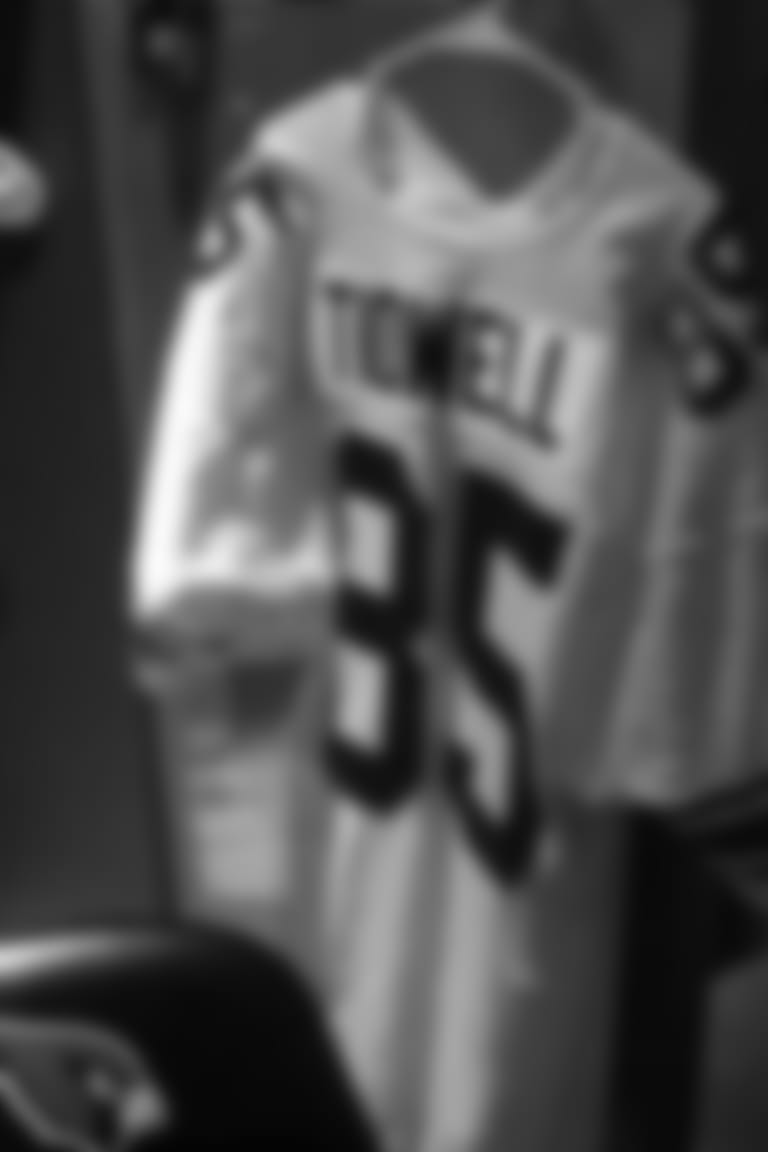Professional life was never going to get much better than this moment for Rod Tidwell, standing in the hallway outside the Sun Devil Stadium locker room of the Arizona Cardinals. He just didn't know it yet.
The wide receiver just had nine catches against Dallas on "Monday Night Football" – the last of which went for a game-winning 17-yard touchdown with a controversial aftermath, but more on that later – and his team still had a chance to make the playoffs.
Swamped by reporters before he could even reach the interview room, Tidwell couldn't stop the tears. It was an emotional win. He was an emotional guy. He knew that new contract he coveted – the big one, not the disappointing extension he had been offered before the season -- was now a likelihood. It was almost like an ending to a movie.
He was the local kid who was primed to break out, this former star at Arizona State University. Maybe even become the face of the franchise.
For a while, Tidwell had been using a word for this potential bliss: Kwan. It was all-encompassing.
"It means love. Respect. Community. And the dollars too," Tidwell once told a friend. "The entire package."
The Kwan was within Tidwell's reach. It just turned out to be more fragile than he ever imagined.
When the Cardinals renovated their Tempe facility last year, a big story was the preservation of the locker once used by the late Pat Tillman. But during the efforts to clear out that area, another locker drew attention. Stuck in a crevice of a stall – the one where Tidwell once called home – near the showers was a small gold chain, the number "85" dangling from the end.
That he had somehow lost it was surprising, but perhaps not as much as how quickly Tidwell was lost to history himself. Two decades have passed since Tidwell's glorious personal quest. Bad luck quickly took Tidwell out of his star orbit. A generation of fans doesn't know him. To mention a famous wide receiver for the Cardinals, it's Larry Fitzgerald. It's not Kwan but Quan, as in Anquan Boldin.
His story was no less fascinating, however. To understand Tidwell … well, it's possible no one ever really did.
Tidwell grew up fatherless (The senior Tidwell, Tommy, did try, once, to call at the height of his son's NFL popularity. Tidwell hung up on him.) His mother, Alice, worked multiple jobs to keep the household together, but life was never easy. Tidwell's older brother Mehki – who was considered a better athlete than Rod -- tragically lost his leg after a bass-fishing accident. Then there was Tidwell's younger brother, T.P. (He liked to tell people it stood for "The Prince" but in reality, it stood for his given name, Terrence Phillip.) T.P. Tidwell fed into the worst parts of Rod, encouraging his myopic behavior at the worst times and for the worst reasons.
Rod Tidwell was not the same guy playing football as he was off the field. There was a switch flipped somewhere there, a chip loaded onto Tidwell's shoulder every time he walked into the locker room or on the field or did anything football-related. With his family, that's when Tidwell was most genuine, a love for his wife, Marcee, and two children that wouldn't be matched.
If it was Marcee tethering Tidwell to the family side, it was, somewhat surprisingly, his agent who provided an anchor of sanity to the football side. Jerry Maguire wasn't particularly close with Tidwell when Tidwell first went pro. That changed.
Theirs was an odd relationship. Maguire had been one of the best agents in sports, working at the top of the food chain at powerful Sports Management International. Then came a controversial split. The official story was that Maguire simply decided to open his own practice. Sources inside SMI said Maguire inexplicably tried to undercut those running the company and was bounced because of it. Given that Tidwell ended up as Maguire's only client for a long time, the claim would seem true.
Perhaps it said something about Tidwell that his best friend turned out to be his agent.


















